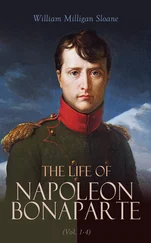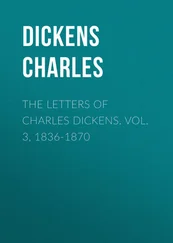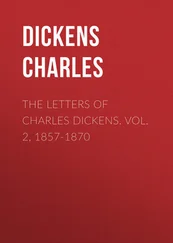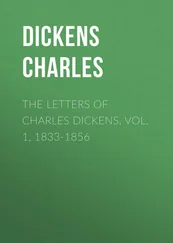William James - The Letters of William James, Vol. 1
Здесь есть возможность читать онлайн «William James - The Letters of William James, Vol. 1» — ознакомительный отрывок электронной книги совершенно бесплатно, а после прочтения отрывка купить полную версию. В некоторых случаях можно слушать аудио, скачать через торрент в формате fb2 и присутствует краткое содержание. Жанр: Биографии и Мемуары, Философия, foreign_edu, foreign_antique, на английском языке. Описание произведения, (предисловие) а так же отзывы посетителей доступны на портале библиотеки ЛибКат.
- Название:The Letters of William James, Vol. 1
- Автор:
- Жанр:
- Год:неизвестен
- ISBN:нет данных
- Рейтинг книги:5 / 5. Голосов: 1
-
Избранное:Добавить в избранное
- Отзывы:
-
Ваша оценка:
- 100
- 1
- 2
- 3
- 4
- 5
The Letters of William James, Vol. 1: краткое содержание, описание и аннотация
Предлагаем к чтению аннотацию, описание, краткое содержание или предисловие (зависит от того, что написал сам автор книги «The Letters of William James, Vol. 1»). Если вы не нашли необходимую информацию о книге — напишите в комментариях, мы постараемся отыскать её.
The Letters of William James, Vol. 1 — читать онлайн ознакомительный отрывок
Ниже представлен текст книги, разбитый по страницам. Система сохранения места последней прочитанной страницы, позволяет с удобством читать онлайн бесплатно книгу «The Letters of William James, Vol. 1», без необходимости каждый раз заново искать на чём Вы остановились. Поставьте закладку, и сможете в любой момент перейти на страницу, на которой закончили чтение.
Интервал:
Закладка:
He applied himself with energy to art for the following year at Newport, working daily in the studio of William Hunt, along with his stimulating young friend, John La Farge. To what good purpose he had drawn and painted from boyhood, and to what point he trained his gift that winter, cannot now be measured and defined in words. Paper and canvas are the proof of such things, which must be seen rather than described; and unfortunately only one canvas and very few drawings have been preserved. In the "Notes of a Son and Brother," several random sketches are reproduced which will say much to the discerning critic. The one canvas that at all indicates the climax of his artistic effort, the beautiful and simple portrait of his cousin Katharine Temple, is also reproduced in the "Notes"; but a small half-tone gives, alas! only an inadequate impression of the quality of the painting. The sketches which are included in the following pages will give an idea of the felicity of his hand, and of his talent for seeing the living line whenever he made sketches or notes from life. He threw these scraps off so easily, valuing them not at all, that few were kept. Then, before a year had passed (that is to say, in 1861), he had decided not to be a painter after all. Thereafter what was remarkable was just that he let so genuine a talent remain completely neglected. Except to record an observation in the laboratory, to explain the object under discussion to a student, or to amuse his children, he soon left pencil and brush quite untouched.
The photographs of James reproduced in this book are all excellent "likenesses," and one, with his colleague, Royce, caught an attitude which suggests the alertness that marked his bearing. He was of medium height (about five feet eight and one-half inches), and though he was muscular and compact, his frame was slight and he appeared to be slender in youth, spare in his last years. His carriage was erect and his tread was firm to the end. Until he was over fifty he used to take the stairs of his own house two, or even three, steps at a bound. He moved rapidly, not to say impatiently, but with an assurance that invested his figure with an informal sort of dignity. After he strained his heart in the Adirondacks in 1899 he had to habituate himself to a moderate pace in walking, but he never learned to make short movements and movements of unpremeditated response in a deliberate way. When he drove about the hilly roads of the Adirondacks or New Hampshire, he was forever springing in and out of the carriage to ease the horses where the way was steep. (Indeed it was so intolerable to him to sit in a carriage while straining beasts pulled it up grade, that he lost much of his enjoyment of driving when he could no longer walk up the hills.) Great was his brother Henry's astonishment at Chocorua, in 1904, to see that he still got out of a "democrat wagon" by springing lightly from the top of the wheel. His doctors had cautioned him against such sudden exertions; but he usually jumped without thinking.
In talking he gesticulated very little, but his face and voice were unusually expressive. His eyes were of that not very dark shade whose depth and color changes with alterations of mood. Mrs. Henry Whitman, who knew him well and painted his portrait, called them "irascible blue eyes." He talked in a voice that was low-pitched rather than deep—an unforgettably agreeable voice, that was admirable for conversation or a small lecture-room, although in a very large hall it vibrated and lacked resonance. His speech was full of earnest, humorous and tender cadences.
James was always as informal in his dress as the occasion permitted. The Norfolk jacket in which he used to lecture to his classes invariably figured in college caricatures—as did also his festive neckties. But there was nothing that disgusted him more than a "loutish" carelessness about appearances. A friend of old days, describing a first meeting with him in the late sixties ejaculated, "He was the cleanest -looking chap!" There seemed to be no flabby or unvitalized fibre in him.
People and conversation excited him—if too many, or too long-continued, to the point of irritation and exhaustion. If, as was sometimes the case, he was moody and silent in a small company, it was a sign that he was overworked and tired out. But when he was roused to vivacity and floated on the current of congenial discussion, his enunciation was rapid, with occasional pauses while he searched for the right word or figure and pursed his lips as though helping the word to come. Then he talked spontaneously, humorously, and often extravagantly, just as he will appear to have written to his correspondents. Sometimes he was vehement, but never ponderous; and he never made anyone, no matter how humble, feel that he was trying to "impress." Men and women of all sorts felt at ease with him, and anybody who, in Touchstone's phrase, 17 17 For James's use of Touchstone's question, see p. 190 infra .
had any philosophy in him, was soon expounding his private hopes, faiths, and skepticisms to James with gusto. He was, distinctly, not a man who required a submissive audience to put him in the vein. A kind of admiring attention that made him self-conscious was as certain to reduce him to silence as a manly give and take was sure to bring him out. It never seemed to occur to him to debate or talk for victory. In Faculty meetings he spoke seldom, and he spent very little time on his feet—except as called upon—when professional congresses or conferences were thrown open to discussion. Similarly, he was seldom at his best at large dinners or formal occasions. His best talk might have been described by a phrase which he used about his father. It was pat and intuitive and had a "smiting" quality. He was never guilty of abusing anecdote,—that frequent instrument of social oppression,—but he loved and told a good story when it would help the discussion along, and showed a fair gift of mimicry in relating one. 18 18 Cf. Henry James's Life of W. W. Story , vol. II, p. 204, where there is a passage which sounds reminiscent of the author's father and brother.
Once, in the early days of their acquaintance, François Pillon, who knew how affectionately James was attached to Harvard University and Cambridge and who assumed that he was a New Englander, asked him about the Puritans. James launched upon a vivacious sketch of their sombre community, and when he had finished Pillon ejaculated with mingled solicitude and astonishment: "Alors! pas un seul bon-vivant parmi vos ancêtres!" The story of the solemn-minded student who stemmed the full tide of a lecture one day by exclaiming, "But, Doctor, Doctor!—to be serious for a moment—," is already well known.
But what counted for the charm and effect of James's conversation more than all else was his lively interest in his interlocutor and in every fresh idea that developed in talk with him. He made the other man feel that he had no desire to pigeon-hole him and dismiss him from further consideration, but that he rejoiced in him as a fellow creature, unique like himself and forever fascinating. "How delicious," he cried, "is the fact that you can't cram individuals under cut-and-dried heads of classification!" He fell instinctively into the other man's mental stride while he drew him out about his age, occupation, history, family circumstances, theories, prejudices, and peculiarities. He abounded in sympathy and even enthusiasm for the other's personal aims and peculiar ideals.
His first reaction to a new scene or to fresh contact with a foreign people was apt to be one of admiration. "How jolly it looks!" he would exclaim, "and how superior in such and such ways to that last!" "How good they seem!" "How sound and worthy to be given its chance to develop is such a civilization!" Restlessness, discriminating moods, and a longing for the "simplifications" of home soon followed; but even when restlessness and homesickness became acute, their effect was not permanent. He was no sooner back in his own home than the peculiar virtues of the place and people from whom he had fled shone again as unique and precious to the universe. It was good that there should be one Oxford, and that it should cling to every ancient peculiarity without surrendering to the spirit of the age—and good too that there should be one Chautauqua!
Читать дальшеИнтервал:
Закладка:
Похожие книги на «The Letters of William James, Vol. 1»
Представляем Вашему вниманию похожие книги на «The Letters of William James, Vol. 1» списком для выбора. Мы отобрали схожую по названию и смыслу литературу в надежде предоставить читателям больше вариантов отыскать новые, интересные, ещё непрочитанные произведения.
Обсуждение, отзывы о книге «The Letters of William James, Vol. 1» и просто собственные мнения читателей. Оставьте ваши комментарии, напишите, что Вы думаете о произведении, его смысле или главных героях. Укажите что конкретно понравилось, а что нет, и почему Вы так считаете.












